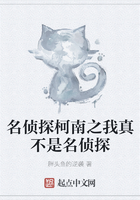It was grief enough for him that the court should be busied in these follies, and Nelson involved in them. "I dread, my lord," said he, "all the feasting, &c. at Palermo. I am sure your health will be hurt. If so, all their saints will be damned by the navy. The king would be better employed digesting a good government; everything gives way to their pleasures. The money spent at Palermo gives discontent here; fifty thousand people are unemployed, trade discouraged, manufactures at a stand. It is the interest of many here to keep the king away: they all dread reform. Their villanies are so deeply rooted, that if some method is not taken to dig them out, this government cannot hold together. Out of twenty millions of ducats, collected as the revenue, only thirteen millions reach the treasury; and the king pays four ducats where he should pay one. He is surrounded by thieves; and none of them have honour or honesty enough to tell him the real and true state of things."In another letter he expressed his sense of the miserable state of Naples. "There are upwards of forty thousand families," said he,"who have relations confined. If some act of oblivion is not passed, there will be no end of persecution; for the people of this country have no idea of anything but revenge, and to gain a point would swear ten thousand false oaths. Constant efforts are made to get a man taken up, in order to rob him. The confiscated property does not reach the king's treasury. All thieves! It is selling for nothing. His own people, whom he employs, are buying it up, and the vagabonds pocket the whole. Ishould not be surprised to hear that they brought a bill of expenses against him for the sale."The Sicilian court, however, were at this time duly sensible of the services which had been rendered them by the British fleet, and their gratitude to Nelson was shown with proper and princely munificence. They gave him the dukedom and domain of Bronte, worth about L3000 a year. It was some days before he could be persuaded to accept it; the argument which finally prevailed is said to have been suggested by the queen, and urged, at her request, by Lady Hamilton upon her knees. "He considered his own honour too much," she said, "if he persisted in refusing what the king and queen felt to be absolutely necessary for the preservation of theirs." The king himself, also, is said to have addressed him in words, which show that the sense of rank will sometimes confer a virtue upon those who seem to be most unworthy of the lot to which they have been born: "Lord Nelson, do you wish that your name alone should pass with honour to posterity; and that I, Ferdinand Bourbon, should appear ungrateful?" He gave him also, when the dukedom was accepted, a diamond-hilted sword, which his father, Char. III. of Spain, had given him on his accession to the throne of the two Sicilies. Nelson said, "the reward was magnificent, and worthy of a king, and he was determined that the inhabitants on the domain should be the happiest in all his Sicilian majesty's dominions. Yet," said he, speaking of these and the other remunerations which were made him for his services, "these presents, rich as they are, do not elevate me. My pride is, that at Constantinople, from the grand seignior to the lowest Turk, the name of Nelson is familiar in their mouths; and in this country I am everything which a grateful monarch and people can call me." Nelson, however, had a pardonable pride in the outward and visible signs of honour which he had so fairly won. He was fond of his Sicilian title; the signification, perhaps, pleased him; Duke of Thunder was what in Dahomy would be called a STRONG NAME; it was to a sailor's taste; and certainly, to no man could it ever be more applicable. But a ****** offering, which he received not long afterwards, from the island of Zante, affected him with a deeper and finer feeling. The Greeks of that little community sent him a golden-headed sword and a truncheon, set round with all the diamonds that the island could furnish, in a single row. They thanked him "for having, by his victory, preserved that part of Greece from the horrors of anarchy; and prayed that his exploits might accelerate the day, in which, amidst the glory and peace of thrones, the miseries of the human race would cease." This unexpected tribute touched Nelson to the heart. "No officer," he said, "had ever received from any country a higher acknowledgment of his services."The French still occupied the Roman states; from which, according to their own admission, they had extorted in jewels, plate, specie, and requisitions of every kind, to the enormous amount of eight millions sterling; yet they affected to appear as deliverers among the people whom they were thus cruelly plundering; and they distributed portraits of Buonaparte, with the blasphemous inscription, "This is the true likeness of the holy saviour of the world!" The people, detesting the impiety, and groaning beneath the exactions of these perfidious robbers, were ready to join any regular force that should come to their assistance; but they dreaded Cardinal Ruffo's rabble, and declared they would resist him as a banditti, who came only for the purpose of pillage. Nelson perceived that no object was now so essential for the tranquillity of Naples as the recovery of Rome; which in the present state of things, when Suvarof was driving the French before him, would complete the deliverance of Italy. He applied, therefore, to Sir James St. Clair Erskine, who in the absence of General Fox commanded at Minorca, to assist in this great object with 1200 men. "The field of glory," said he, "is a large one, and was never more open to any one than at this moment to you. Rome would throw open her gates and receive you as her deliverer; and the pope would owe his restoration to a heretic." But Sir James Erskine looked only at the difficulties of the undertaking. "Twelve hundred men, he thought, would be too small a force to be committed in such an enterprise; for Civita Vecchia was a regular fortress; the local situation and climate also were such, that even if this force were adequate, it would be proper to delay the.expedition till October. General Fox, too, was soon expected; and during his absence, and under existing circumstances, he did not feel justified in sending away such a detachment."What this general thought it imprudent to attempt, Nelson and Troubridge effected without his assistance, by a small detachment from the fleet. Troubridge first sent Captain Hallowell to Civita Vecchia to offer the garrison there and at Castle St. Angelo the same terms which had been granted to Gaieta. Hallowell perceived, by the overstrained civility of the officers who came off to him, and the compliments which they paid to the English nation, that they were sensible of their own weakness and their inability to offer any effectual resistance; but the French know, that while they are in a condition to serve their government, they can rely upon it for every possible exertion in their support; and this reliance gives them hope and confidence to the last.
同类推荐
热门推荐
名侦探柯南之我真不是名侦探
性格腼腆老实乖巧的柯南(他父亲是名侦探柯南粉铁杆粉丝,就给他取了这个偶像的名字),从小到大也没做过什么出格的事情,因此他一辈子过得安安稳稳。但是大学时,被无良室友坑害,不小心看了一步小片子,宿舍电路短路,引发大火,他竟然穿越到了真正的柯南身上。面对案件他都主动,退避三舍,然后死神小学生的名号可不是盖的!走到哪,案件发生到哪,看过这么多集剧情的他总是下意识稀里糊涂地破案了。更有甚者,案件还未发生,他就劝阻了犯人!“我真不不会破案,本能,身体的本能,懂?我真不是名侦探!”面对少年侦探团,服部,甚至是怪盗基德,他总是这样摇着手推脱。众人:“切!”暗夜蔷薇,宠妻豪门复仇
那天,她亲眼见到自己的母亲含恨而死,那天,她没有哭,只是因为她母亲临死的一句话“承熙,以后遇到再大的困难都不可以哭,因为眼泪不能代表什么,没有人会因为你的眼泪而放弃一切。”她因为那个让她妈妈爱了一生地男人走上了复仇的道路,“顾夜,我要用你全家来祭奠我的母亲。”她不在善良,无情冷漠变成了她唯一的伪装。十七岁那年,她遇到了那个男人的儿子,她发誓要让他的儿子来体会当年他带给母亲的痛。是不是一切的恩怨都会有结果,是谁编织了这场阴谋,是谁改变了那场青春的结果,或许,不是所有的感情都会有结果。风雨晚清:一个民族的百年涅槃
1811年,内有忧,外有患,天朝大厦将倾。1840年,英国的坚船利炮惊醒了沉睡中的大清。1898年,甲午海战,大清再摔一个四脚朝天。1900年,仰仗义和团的慈禧向西方列强叫嚣,却再次被羞辱。1911年,武昌起义,辛亥革命成功,中华民族终于在趔趄中爬起。这一百年,见证了一个民族的涅槃。世界名人成长历程——企业家(4)
本书精选荟萃了古今中外各行各业具有代表性的有关名人,其中有政治家、外交家、军事家、谋略家、思想家、文学家、艺术家、教育家、科学家、发明家、探险家、经济学家、企业家等,阅读这些名人的成长故事,能够领略他们的人生追求与思想力量,使我们受到启迪和教益,使我们能够很好地把握人生的关健时点,指导我们走好人生道路,取得事业发展。















